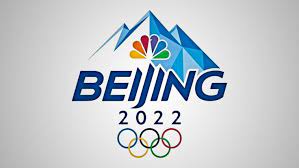Even as the Winter Olympics opens in Beijing on Friday (4th February), Chinese authorities have detained activists in their homes and sent others to jail.
Censors have shut down the social media accounts of prominent critics. Officials have also warned participating athletes that protest could bring prosecution.
Chinese citizens and foreign athletes participating in the game are expected to adhere to these rules. It directly points towards the government’s growing repression.
The Olympic sponsors and advertisers have also warned their employees to avoid sensitive topics.
Activists and human rights groups have accused the Government of restricting civil liberties in Hong Kong, oppressing ethnic minorities in Xinjiang and Tibet. This has met with harsh repression and detention of activists.
Peng Shuai, a top tennis player has mostly disappeared from public view after accusing a senior Chinese leader of sexual assault.
The Beijing police have placed Hu Jia, a prominent social activist, under house arrest. In January, he took to Twitter to criticize state security agents for questioning, harassing and detaining critics ahead of the Winter Olympics.
“They said if I don’t stay silent, my rights to visit my mother may be affected,” he said, adding that the authorities were determined to quash any overt criticisms of the Games online.
Teng Biao, a Chinese lawyer said that visiting athletes has “a responsibility to say something” about China’s growing repression. But the questions remains that will they?
Even as the officials laid out the red carpet for the foreign athletes, Beijing has made it clear that protests will not be tolerated.
“Any behaviour or speech that is against the Olympic spirit, especially against the Chinese laws and regulations, are also subject to certain punishment,” warned Yang Shu, the deputy director of Beijing’s Olympic organizing committee.
The Games will take place in three bubbles guarded by workers in protective gear and cut off from the surrounding cities. Those inside the bubbles must download a Chinese app that monitors their health and controls their movements between venues. The Olympic events will take place in front of a limited audience of screened spectators.
There are fences to keep people out of venues like Beijing’s iconic National Stadium, known as the Bird’s Nest, where the opening ceremony will be held.
The International Olympic committee has maintained silence on the issue.
“What a world for us to be living in,” said Mandie McKeown, executive director of the International Tibet Network, a coalition of groups supporting Tibetan rights that helped to organize protests in several cities calling for a boycott of the Olympics.
She criticized the International Olympic Committee for not doing more to press China to ensure free speech and other values written in the Olympic Charters. “It’s just ludicrous,” she said.
To Xi Jingping, the Olympic is the emblem of their political system success. And to forcibly portray this the government has turned to harsh authoritarian tactics to quash dissent and build national power.
The party has been carefully scrutinizing those who seek to criticize it. And the criticizers have often disappeared from public view after accusing the government.
The Chinese authorities have moved to muzzle those who might speak out while the spotlight is on China. Human rights groups have pointed to the detention or sentencing of five high-profile activists in recent weeks, including Xie Yang, a lawyer who was detained in January, according to The New York Times.
Several activists and intellectuals said that police have tried to silence them by shutting down their access to social media and the internet.
Zhang Yihe., a Chinese author and historian, has been prevented from using various functions on the popular social media app WeChat. Similarly, Gao Yu, a veteran journalist and activist, said her WeChat account was suspended.
Now, Mr. Xi is showing that China has become powerful enough that it does not need to worry about what people think, according to Mr. Teng, the human rights lawyer, who went into exile and is now a visiting scholar at the University of Chicago.
“Compared to 2008, the Chinese government has become more and more powerful and aggressive. It seems they care less about international pressure,” he said in an interview.
Chinese officials have already said that athletes will be given cell services that enable them to access sites like Facebook, Twitter, YouTube and Google, which are blocked for Chinese citizens.
It is unclear if the authorities would seek to punish foreign Olympic participants for online dissent, as they would Chinese citizens.
Nishant Mishra- based on an article from New York Times


